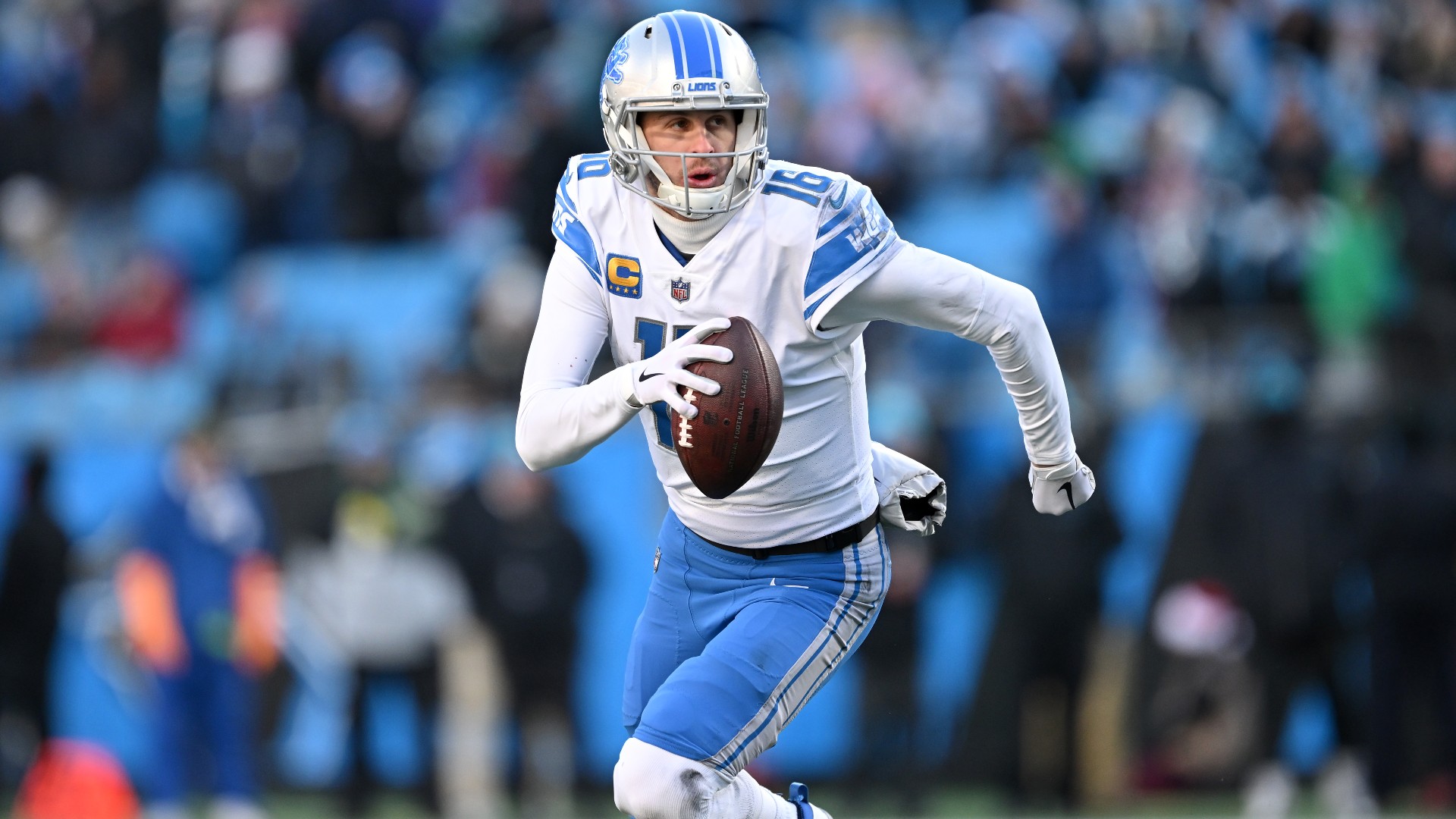
Detroit Lions’ contract with Jared Goff unexpectedly criticized by NFL expert
The Detroit Lions are coming off a 12-5 season, their best performance since 1991, and have made numerous offseason moves to strengthen their roster.
However, ESPN analytics writer Seth Walder rated the Lions’ offseason as the sixth worst among all 32 NFL teams, giving it a “C” grade. His primary concern: the contract extension for Jared Goff.
“The most significant transaction the Lions made was the four-year, $212 million extension for Goff,” Walder noted. “I can’t support this move at that price. It has the potential to burden the organization for years. Goff is a divisive talent, and while opinions vary, most would agree he’s not a top-10 QB. Offensive coordinator Ben Johnson deserves much of the credit for Detroit’s offensive success. If Johnson leaves for a head coaching position soon, how effective would Goff be? It’s a valid question.”
Yes it may be a fair question, but without a solidified starting quarterback like Goff, would the Lions have had their best season in three decades? Let’s dig into what Walder had to say about Goff, look at the Lions’ moves he liked and see how other top competitors fared in his grades.
You have to pay to play

The quarterback has historically been one of the most important positions in the NFL, with the price tag increasing each year for one that can just give teams a shot in the playoffs. Goff was able to get the Lions to their second-ever NFC Championship game in the Super Bowl era.
Instead of guaranteeing Goff $170 million, Walder oddly suggested using the franchise tag to manage Goff’s contract.
“Had the Lions allowed Goff to play out his 2024 contract (approximately $27 million in cash) and then applied the nonexclusive franchise tag in 2025, and again in 2026 and 2027, it would amount to roughly 1 year/$27 million, or 2 years/$69 million, or 3 years/$120 million, or 4 years/$193 million,” Walder wrote.
Instead of guaranteeing Goff $170 million, Walder oddly suggested using the franchise tag to extend his tenure.
“Had the Lions let Goff play out his 2024 contract (approximately $27 million in cash) and then applied the nonexclusive franchise tag in 2025, 2026, and 2027, the cost would have been roughly 1 year/$27 million, 2 years/$69 million, 3 years/$120 million, or 4 years/$193 million,” Walder wrote.

Those quarterbacks received extensions after having phenomenal seasons, and Goff put on a show last season in coordinator Ben Johnson’s offense. He had the second-most passing yards in the NFL with 4,575, and was fourth in passing touchdowns with 30.
To keep a quality starting quarterback in this league, you have to pay, and when your starting quarterback helps the team to two wins in the playoffs, you have to pay big. Especially if you are the Lions.
Lions other offseason moves

Walder approved of many of the Lions’ other offseason moves.
“In positive news, the Lions secured crucial value deals for Graham Glasgow and Kevin Zeitler in a very expensive guard market,” Walder wrote. “They brought in D.J. Reader at defensive tackle and signed Marcus Davenport on a worthwhile one-year flier to address the need at edge opposite Aidan Hutchinson. The team used its first two draft picks to address a major need at cornerback, although they sacrificed value to trade up for Terrion Arnold.”
He also supported the big extensions for Penei Sewell and Amon-Ra St. Brown, stating they “are deserving of high-end deals.”
By re-signing key players and adding strong new ones to an already competitive NFC Championship game squad, the Lions are well-positioned to compete with their higher-ranked rivals, according to Walder.
Competitors did better than Lions
The Philadelphia Eagles earned an “A” grade for their offseason, the highest of any NFL team, though Walder’s “Move I disliked” was the signing of Saquon Barkley.
“I wouldn’t have spent as much on Barkley as they did ($26 million fully guaranteed), but he should be an upgrade at running back, enhancing the team’s already impressive skill position lineup, which includes A.J. Brown, DeVonta Smith, and tight end Dallas Goedert.”
The Super Bowl runner-up San Francisco 49ers received a “B” grade, ranking 13th on the list.
“Perhaps the most notable move of the 49ers’ offseason is one they haven’t made yet: trading Brandon Aiyuk or fellow receiver Deebo Samuel,” Walder wrote. “Aiyuk is worth retaining and compensating, as he was the top overall receiver in ESPN’s receiver tracking metrics last season and is just 26 years old.”
How the NFC North graded out

In the Lions’ division, the Chicago Bears received the highest offseason grade with a “B+,” with their biggest move being the drafting of quarterback Caleb Williams, according to Walder.
The Green Bay Packers earned the second-best offseason grade in the NFC North with a “B-.” However, Walder criticized the decision to sign running back Josh Jacobs for $12.5 million guaranteed.
The Minnesota Vikings received the lowest offseason grade in the NFC North with a “C-” and the fourth worst overall. Their major move was drafting Michigan’s J.J. McCarthy. Walder commented, “The Vikings charted a new path by letting quarterback Kirk Cousins go—a reasonable decision given his age and Achilles injury—and ventured into the uncertain waters of the quarterback market.”





